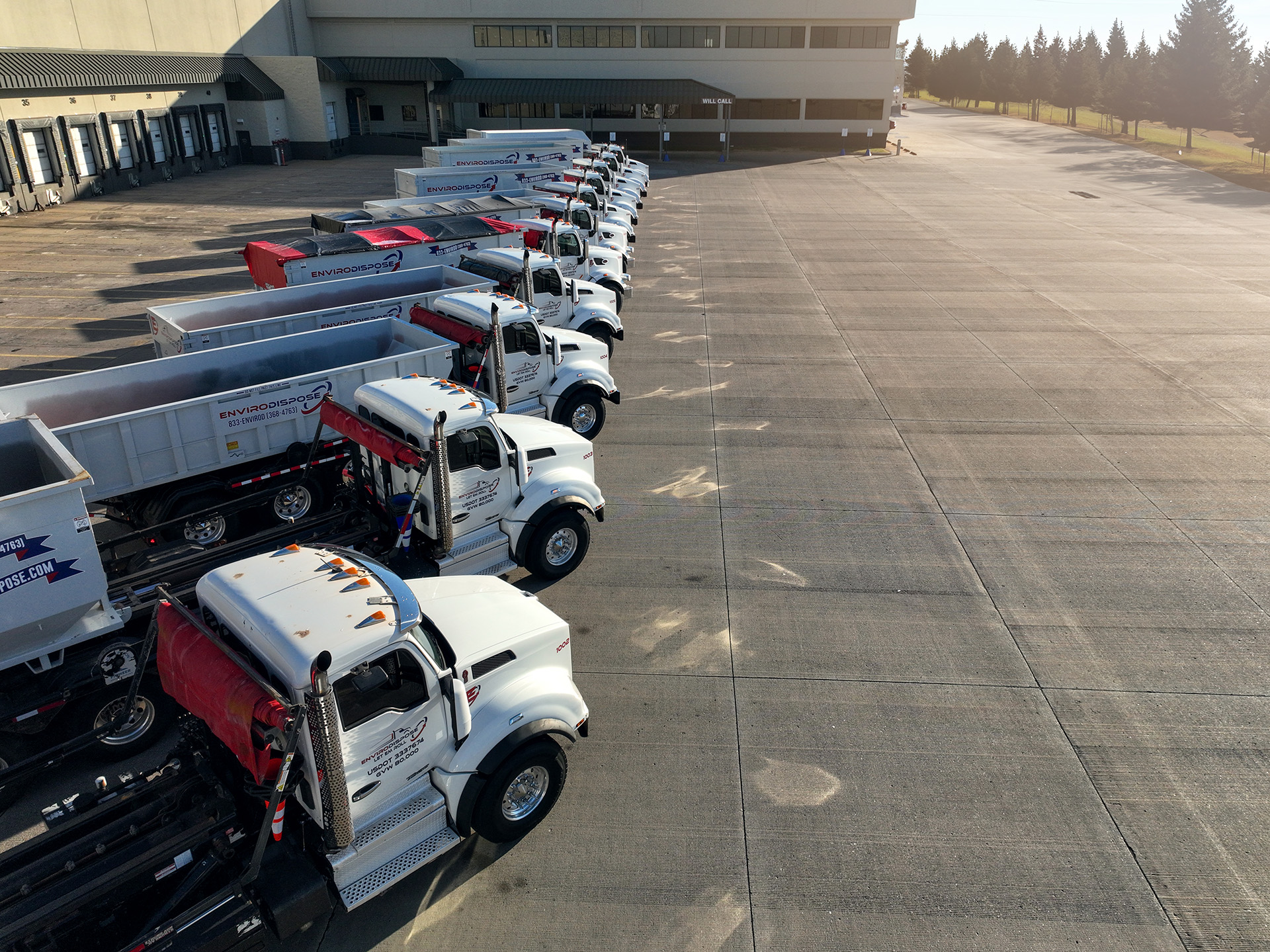
Efficient Waste Management Tips for Construction Sites
Constructing a new building or renovating an existing structure requires significant planning, especially when it comes to Waste Management. It’s essential for us to address how efficient waste disposal not only keeps the site tidy but also complies with regulations and supports environmental sustainability. At our company, we take pride in providing tailored waste disposal solutions that cater specifically to the construction industry. Our goal is to help you streamline the process, reduce potential delays, and ensure that your project stays on track without unnecessary disruption.
Managing construction waste is more than just tossing leftovers into a bin. It involves understanding the types of waste your project generates, deciding on the right disposal methods, and choosing the appropriate sizes of dumpsters that fit the waste output and site space. Every decision in waste management impacts not only project timelines but also budgets and environmental footprints. Considering these factors, we focus on offering services that merge reliability with sustainability, providing peace of mind that your construction waste is handled responsibly and efficiently.
Understanding the Importance of Efficient Waste Management on Construction Sites
Effective waste management is crucial on construction sites to not only maintain cleanliness but also to adhere to environmental standards and ensure operational efficiency. Hiring a dumpster rental for construction can effectively reduce unnecessary costs and enhance safety. By prioritizing this aspect of construction management, we not only uphold our commitment to environmental stewardship but also optimize the overall project workflow. Proper disposal and recycling of materials help lessen the environmental impact of building projects while also keeping the workspace orderly and functional.
Our approach is centered around identifying the specific types of waste generated by each project and implementing the best practices for their disposal. This strategy not only supports sustainability but also ensures that all operations are compliant with local regulations, which frequently update to reflect new environmental priorities. We recognize that each site has unique waste management needs, so our solutions are always customized to provide the most benefit to our clients and the planet.
Step-by-Step Guide: How to Choose the Right Dumpster Size for Your Construction Project
Choosing the right dumpster size is essential to manage waste effectively on any construction site. The size you need largely depends on the scale of your project and the type of materials you’ll be disposing of. We offer a range of dumpster sizes to suit various demands, from small renovations to large-scale constructions. Here’s a simple guide to help you select the ideal dumpster size:
1. Evaluate Your Project Size: Large constructions will naturally generate more waste. As a rule of thumb, the bigger the project, the larger the dumpster required.
2. Identify the Type of Waste: Different construction materials require different types of dumpsters. For example, heavy materials like concrete or bricks may need sturdier dumpsters with lower load capacities to avoid overloading.
3. Consider Site Space: The amount of space available on your construction site can also dictate the size of the dumpster. It’s important to choose a size that fits comfortably within your site to facilitate easy access and efficient waste disposal.
4. Consult with Experts: We are here to assist! Our experienced team can provide personalized recommendations based on the specifics of your project to ensure that your waste management setup in Oklahoma is as effective as possible.
Using this guide, you can ensure that you have the correct dumpster size that will not only handle your waste requirements efficiently but also align with environmental guidelines and help keep your project on schedule.
Top Waste Management Tips for Keeping Construction Sites Clean and Eco-Friendly
Maintaining a clean and eco-friendly construction site is not just about compliance—it’s about taking proactive steps to minimize environmental impact while ensuring a smooth operational flow. We emphasize the necessity of implementing sustainable practices, which prolongs the life of raw materials and reduces unnecessary waste. Key strategies include hiring waste bin rentals, sorting waste correctly, and using recycling practices wherever possible. This helps us not only keep the site clean but also conserves resources and reduces disposal costs.
Additionally, scheduling regular waste pickups can prevent the buildup of debris that can interfere with daily operations. We advise planning the waste management schedule early in the project to integrate it seamlessly with other activities. By prioritizing eco-friendly practices, construction sites can significantly lower their environmental footprints while promoting a cleaner, safer working environment.
The Do’s and Don’ts of Construction Waste: What Goes in the Bin?
When it comes to disposing of construction waste, knowing what can safely go into our dumpsters is crucial to maintain efficiency and adhere to environmental regulations. Here’s a quick rundown:
Do’s:
– Non-hazardous materials: This includes wood, metal, concrete, bricks, and most types of building debris.
– Packaging materials: Cardboard, plastic wrappings, and other non-toxic packaging materials are usually acceptable.
– Yard waste: In circumstances where landscaping is involved, leaves, branches, and other organic materials can be disposed of in our waste bins.
Don’ts:
– Hazardous materials: Chemical products, asbestos, paint cans, oils, and refrigerants must be handled separately due to their potential environmental and health risks.
– Electronics: Items like computers, monitors, and other electronics require special disposal methods and are not to be thrown in construction dumpsters.
– Liquids: Concrete with excessive water, sludge, or any other type of significant liquid waste should not be placed in dumpsters to avoid leakage and potential contamination.
By following these guidelines, you can ensure that your construction waste is managed in the most effective, compliant, and environmentally friendly manner possible.
Conclusion
Managing waste on a construction site demands a structured approach that balances operational efficiency with environmental responsibility. As we advance through 2024, staying informed and adaptable to new waste management technologies and regulations becomes more crucial. We are proud to guide and assist you in optimizing your construction project’s waste management strategies, ensuring compliance, and bolstering your project’s green credentials.
If you’re planning a project and need expert construction waste management solutions, don’t hesitate to reach out to us at EnviroDispose. We’re here to help you keep your site clean, compliant, and environmentally friendly.


